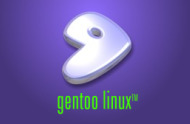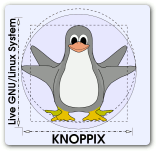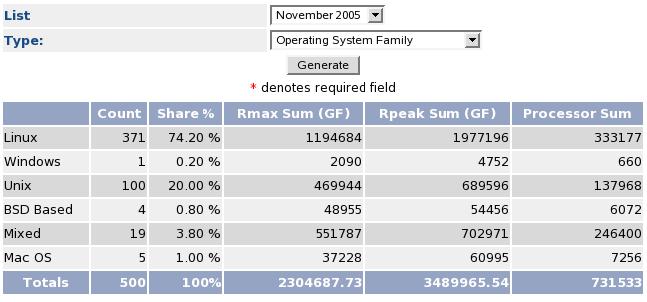Einleitung
- Linux is an affordable, good, stable, reliable and secure Operating System for Desktop and Server applications.
- Linux is well suited for academic as well as for commercial usage.
- Linux is not thinkable without the Internet.
- Linux is a philosophy, but Linux is also a software.
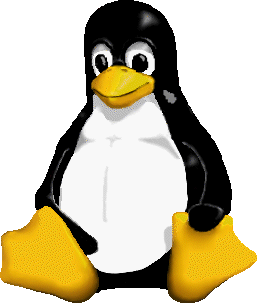
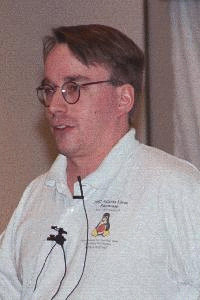
Linux ist ein Unix-Derivat
- 1969: Ken Thompson entwickelt UNIX bei den Bell Labs.
- 1984-1987: am MIT wird X-windows entwickelt.
- ~1985: Andrew Tanenbaum entwickelt Minix.
- 1991: Linus Torvalds beginnt an einem Minix Derivat, genannt "Linux", zu arbeiten.
- 1991: erster stabiler Kernel. Linux verbreitet sich im Internet.
- 1993/1994: erste Linux Distributionen auf CD-ROM.
- 1998: Commercial hardware companies Siemens, HP, Dell, Fujitsu-Siemens und IBM announce Linux on their plattforms.
- 1999: After SAPs announcement to port SAP R/3 to linux, the following producers of DB / Applications software are in the linux boat: Oracle, Informix, Sybase, Ingres, Netscape.
- 2000: Gründung der Open Software Development Labs (OSDL) zur Unterstütung der wichtigsten Entwickler.
- 2000+: Streit um Software Patente mit SCO.
- 2008: Linux auf Smartphones, Android.
Systemarchitektur
- Layered model of a Linux Hardware/Software - System
- Last kernel release: v2.6.37.6-0.5
- Nest big step: 3.0
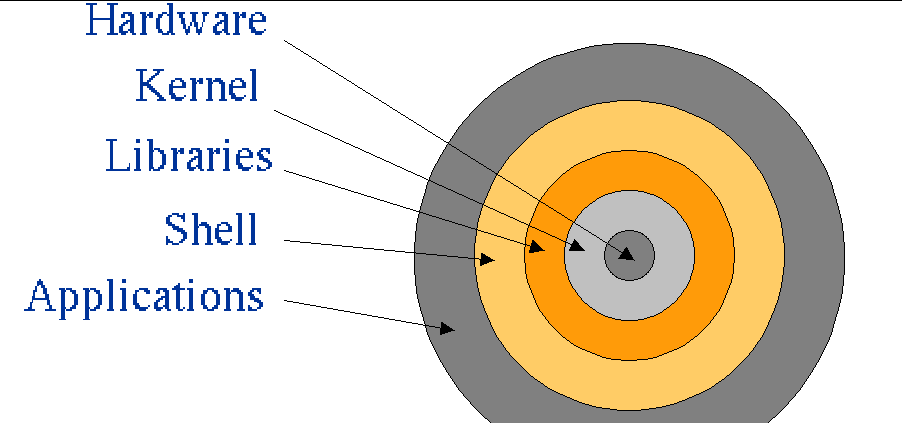
- Kernel supports multi-tasking and multi-user operation
- virtual memory with swapping
- shared libraries
- inter process communication
- multi-core CPU systems and symmetric multiprocessors
- all kinds of networking protocols, especially TCP/IP over DSL, ISDN, WLAN, WAN, LAN
- high performance computing clusters
- many different (journaling, cluster) file systems: Ext2/3/4, Reiser, XFS, JFS, OCFS2, GFS, BTRFS, CIFS, UnionFS
- runs on all kinds of hardware from mainframe to smartphones, including 64bit AMD and Intel systems, ARM
GNU = GNU is Not Unix
- Tools available for all major platforms
- Products under GNU Public License (GPL)
- Standadization of Software
- High Reliability
- High Functionality
- GNU Public Licence (GPL):
- Free Availability of Source Code
- Free passing on of the complete Software Package
Hardware Platforms
Processors:
- Intel x86, IA68
- AMD x86, Opteron
- DEC Alpha
- MIPS
- PowerPC / PowerMAC
- Sun SPARC / Ultra Sparc
- Motorola m68k
- ARM
Systems:
- IBM AS/400, RS/6000, S/390
- Siemens Celsius, Primergy
- SGI Indy
- HP (Compaq) Alpha Server
- NeXT
- 3Com Palm II/III
Development Philosophy
- Release early, release often - L. Torvalds
- Delegate everything you can - L. Torvalds
- Treating the users as co-developers means rapid code improvement and effective debugging.
- Given a large enough beta-tester and co-developer base, almost every problem will be characterized fast and the fix obviously to someone.
- Debugging is parallelizable - Jeff Dutky, Opensource Movement
- KISS - Keep It Small and Simple
- Listen to the users. Sometimes their ideas are better.
- Recognizing good ideas from others is very important.
- The internet is an ideal tool for development of software according to the Bazaar-Model.
- In contrast Microsoft Software is developed according to the Cathedral-Model.
- Linux is developed by the community.
- Anyone making use of the software must agree to give everyone else the rights to use, modify, and redistribute the program´s code or any program derived from it but only if the distribution terms are unchanged.
Distributions
as of August 2008
contain: kernel, X-windows, KDE and/or Gnome, Apache, Office, FireFox, etc.
Debian
Gentoo
Knoppix
Mandriva
Red Flag
Red Hat
SuSE
Ubuntu
for example SuSE
- Good manual
- Help files and docs on CD
- 60 Days free installation support via Email, Fax and Hotline
- SuSE-support database on the Internet (free)
- Commercial support service
Free Support
- Zero costs (if you have Internet access)
- You have to be active in Newsgroups, Mailing Lists, WWW etc.
- there is no guaranteed servic time ...
but a very high probability to get the problem fixed
Technical Support
- Community Help: The Linux Documentation Project maintains dozens of how-to files covering every imaginable subject, including installation, DOS emulation, networking, and using Cyrillic characters.
- Check Out Newsgroups: Check out the wide variety of Linux-based Usenet newsgroups, including comp.os.linux.misc, comp.os.linux.setup, comp.os.linux.questions, and alt.os.linux.
- Other Linux Users: Linux user groups have cropped up around the globe
- Commercial: If your company needs Linux support -- even around the clock -- it's available. Both Red Hat and SuSE offer full-time, phone-based tech support help, either on a per-incident or annual contract basis. In addition, there is now support from software and hardware vendors like Siemens, IBM, HP
Direct Support
- Linux "common channels" support using specialized news groups and mailing lists has a great value.
- Direct contact with the main developers
- Direct contact with users with the same problem
- Fast response and advice ( ~ 1 hour response time is common)
- An alternative to "commercial support" but without guarantees
- Hardware and Software support directly from vendors recommended
- By mission critical application 24/7 support contracts recommended
Linux as Desktop Maschine
- Office suits available (Applixware, StarOffice, Wordperfect, KDE-Office, OpenOffice)
- Easy to use and compatibility with MS-Office (Word, PPT)
- Smart text editing and formatting available: TeX, LaTeX
- Not easy to use, but very widespread use from Scientific Users well suited for big documents and books
- Graphical user interface is X-Windows, X11R6 from XFree86 or X.org
- Desktops: KDE, Gnome, Fluxbox, ICE
- Applications for most important tasks: Office applications, image processing, scientific/technical, web, audio, internet tools, software development, rendering, ...
- SAP R/3 GUI available since 12/99
- Although many applications are available, Linux needs a better and easier installation procedures and more applications for the normal user.
- L. Torvalds: "... The desktop market is the hardest by far".
- Linux on Netbooks: Asus EeePC, Acer Aspire One, MSI Wind, etc.
- Linux on Smartphones: Android.
Linux as Server: Intranet + Internet
- Samba (in Windows-Networks)
- NFS (Network File System)
- Print-Server
- Email-Server (with IMAP or POP3)
- Central Backup-Server
- Firewall between LAN and Internet
- FTP (File Transfer Protocol)
- WWW-Server mit Apache (HTTP), PHP und MySQL
- News-Server
- Email-Server
- Name-Server (DNS)
- Linux is great as operating system in LANs and in the Internet

